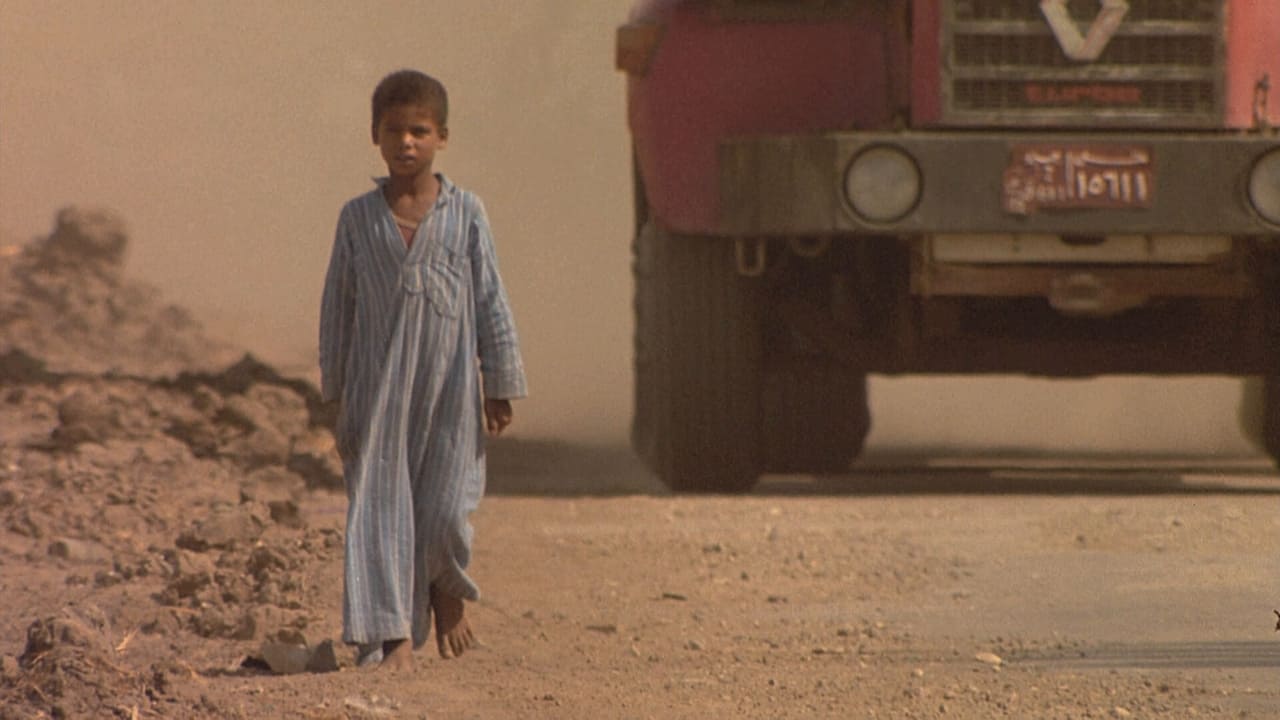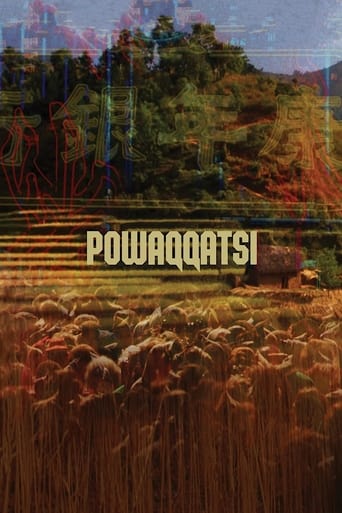StyleSk8r
At first rather annoying in its heavy emphasis on reenactments, this movie ultimately proves fascinating, simply because the complicated, highly dramatic tale it tells still almost defies belief.
Clarissa Mora
The tone of this movie is interesting -- the stakes are both dramatic and high, but it's balanced with a lot of fun, tongue and cheek dialogue.
Guillelmina
The film's masterful storytelling did its job. The message was clear. No need to overdo.
Phillipa
Strong acting helps the film overcome an uncertain premise and create characters that hold our attention absolutely.
Tim Kidner
I'm not trying to undersell Powaqqatsi (meaning 'parasite' in the Hopi language) but to emphasise the quality of the steady stream of images that unfold on us - and their subject matter.Often of people doing things in third world countries and often in very slo-mo, always very colourful and beautifully and perfectly composed, this is a feast for the eyes - and the ears. Equally good is Philip Glass' excellent, haunting and eclectic score, that obviously wasn't just tacked on afterwards.The film's intention is to highlight the way man has and is encroaching on nature - hence the title and its translation. Executive produced by mega directors of the period, Francis Ford Copolla and George Lucas, you can see that this was meant to hit big and hard. It could be argued, however, that the images don't go far enough - a certificate U means that the film is universally pretty and inoffensive, but what man has done to this planet isn't and a bolder approach would hit home harder and make its message clearer.I still prefer Koyaanisqatsi (PC's spell-checker going mental!) to this as that veers more to slightly more exciting imagery.
johnstonjames
i love Godfrey Reggio's 'Qatsi' trilogy of films. i watch them over and over again every year and have seen all three many times. not only do they have awesome musical scores by the respected, award winning composer Philip Glass and exquisite photography by Leonidas Zourdoumis and Graham Berry, they are deeply profound and moving journeys through existence as viewed through a divine eye.to say these films are mystical and spiritual is almost an understatement. they are positively life changing and affirming. after viewing these films i always feel somewhat altered or changed in my perception of people, places and things. which is what the 'Qatsi' trilogy is all about. people, places, and things. not to mention our profound relationship with God, the creator.'Powaqqatsi' is probably my favorite of the trilogy because it deals with third world countries and is more about the human experience than the other two films. it deals with the heartening plight of third world countries and the effect technology and so-called progress is having on them. the faces of so many of the little third world children photographed here is enough to melt the hardest of hearts(lets hope so). i especially thought the footage of a little girl driving an ox cart like a angel out of hell was very arresting. and the scene with the children on the run-down, antique ferris wheel is probably one of sweetest, most endearing things ever photographed for film.this film is very much about children and very much about humanity. few films have captured the plight of humanity nearly as well.this is definitely my favorite. but all of Reggio's 'Qatsi' films are amazing and timeless. they effect the mind and soul on a variety of levels and stimulate our interest in life and in each other. God Bless and Merry Christmas. 12/10/10.
miagy
The imaginative slow-motion documentary without any line,sequence, camera just goes through nature , cities and public over third world counties. Everydays routines seems amazing , ordinary motions put in slow are breath-taking.Sense for camera scenes and views and extraordinary shots make this one worth to see. Plus mixed with Philip Glass's composed music - it is relaxing and mild. Also you can find some scenes showing our world going to destructive end and the most moving scene in the end when there is shown that we mostly even can not see pictures like these because this "kind" of world is situated behind a certain curtain, for most of us hard to see through - we live above and look only to our reflections.
CaptSlog
This film sweeps along in what sometimes looks almost like a travel documentary. The viewer is taken to Brazilian mines, across plains, native fishing fleets, Egypt (?) and New York. The film seems to be drawing a contrast between the Third World and "Civilization" ways of lifeThe images presented are breath-taking and beautifully shot, if at times a little disquieting (the close-up, "in the face" shots of people make you feel that you are invading their privacy!). But what makes the film for me is the music, I honestly thought at one time that it was the reason for the film.The Score is by Phillip Glass, and just soars along linking everything together. It's very well done and you find yourself disappointed when a theme ends, only to be replaced by another, just as good as the last. Some of the music also cropped up in "The Truman Show" (Jim Carey as Truman, 1998), causing me to dig out my aging VCR recording of Powaqqatsi and wear it out a little more. Looking forward to the DVD.

